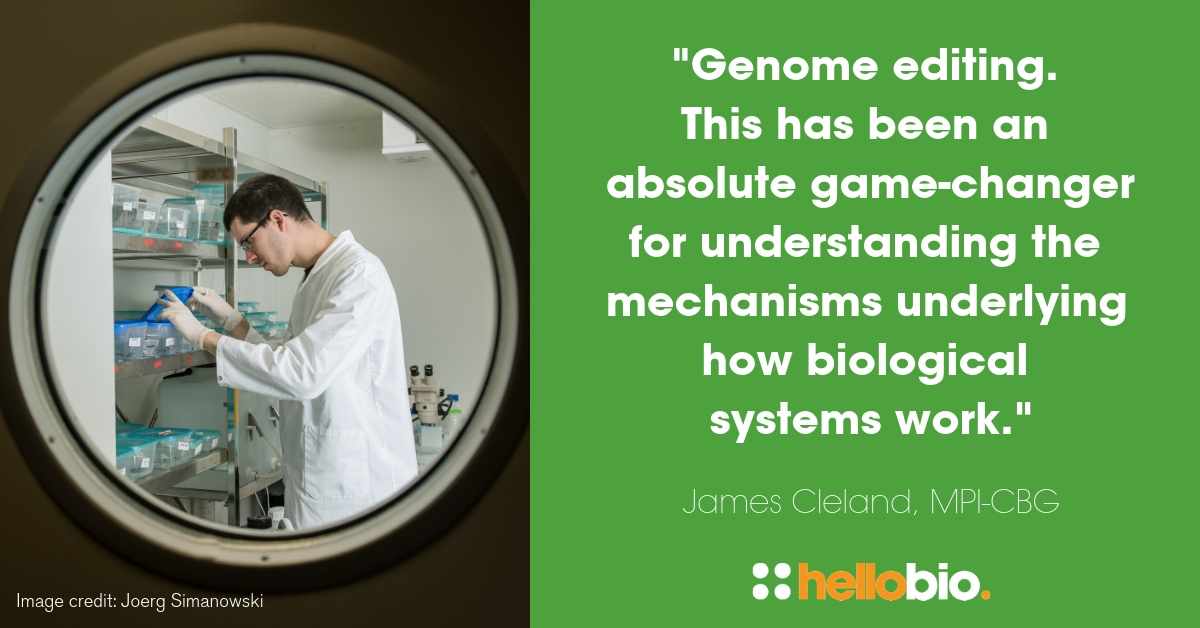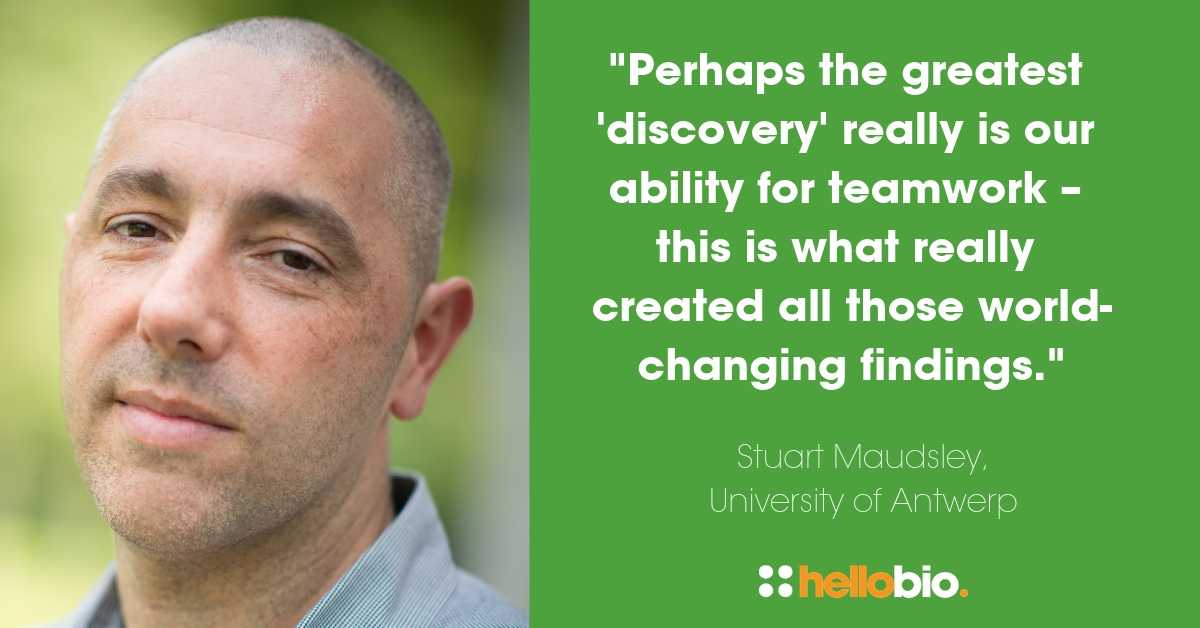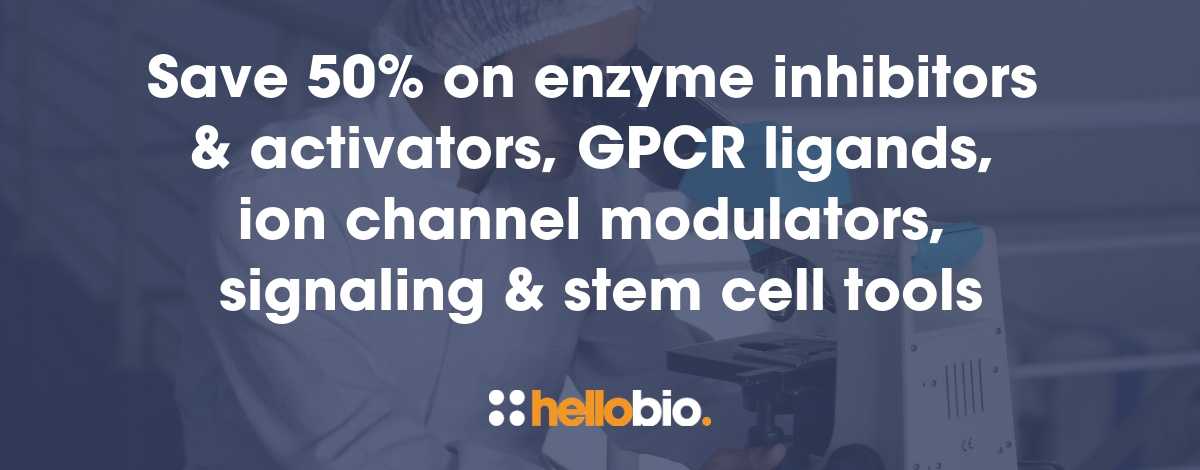What Are The Greatest Scientific Discoveries Of All Time?
All scientific discoveries are amazing, and some are truly life changing. To give science some extra love (as if we could love it any more), we’ve looked back on our conversations and interviews with our life science community to see which scientific discoveries you think are the greatest.
From penicillin to genome editing to CRISPR, here’s a roundup of the greatest scientific discoveries of all time (in no particular order) which have been highlighted on our blog over the past year.
1. Genome editing
“It has given scientists the power to surgically remove - and just as excitingly, monitor the activity of - genes and the regulatory elements that control them. This has been an absolute game-changer for understanding the mechanisms underlying how biological systems work, but also the diseases that disturb them. Excitingly, some of these efforts are even in clinical trials and hopefully slowly working their way into the clinic.”
James Cleland, PhD Fellow at the Max Planck Institute of Molecular Cell Biology and Genetics (MPI-CBG)

2. CRISPR (Clustered Regularly Interspaced Short Palindromic Repeats)
“I think it is the versatility of CRISPR that makes it the greatest discovery of all time, CRISPR can be used to edit, knock-out, inhibit and activate genes. I am very excited to be starting a new project in the new year involving CRISPR and I can’t wait to see what we will learn using this technique”.
Rebecca San Gil, Postdoctoral Research Fellow at the Queensland Brain Institute, University of Queensland

3. RNA-sequencing
“Being able to sequence the transcriptome of cells from different physiological conditions has opened the door for identifying critical molecular markers for such disease states and will greatly aid in the development and / or identification of therapeutics.”
Jennifer Martin, graduate student at the State University of New York at Buffalo in the Department of Pharmacology and Toxicology

4. Penicillin
“Penicillin. Where would we be without antibiotics?”
Lizzie Mann, PhD student in Susan Duty’s lab at King’s College London
“Not only did it save so many lives but it jump-started antibiotic drug discovery which has helped evolve all modern medicine.”
Madison Fletcher, postdoctoral research associate at the University of California Irvine

5. The molecular structure of DNA
“So much of our modern-day research revolves around genetics: from pinpointing the causes of genetic disorders, such as Huntington’s disease, to manipulating the genome of animal models and observing how this affects their behaviours. Even outside of life sciences, DNA profiling has changed the world of forensic science to improve the criminal justice systems.”
Lucy Lewis, PhD student at Cardiff University

6. Electricity
“For humankind, probably the discovery of electricity, but I wish we weren't so dependent on it. For the good of pure science, I think the discovery of evolution and DNA is pretty incredible, and we still have more to discover!”
Maria Diehl, postdoc at University of Puerto Rico School of Medicine

“I don’t think I could pick ‘the greatest’ but the one dearest to my heart in many ways is probably the discovery and understanding of electricity, by a number of scientists in the 18th and 19th centuries. Understanding electricity not only paved the way for a transformation of technology, but it led on to the discovery that our brain and nervous system also communicate through electrical impulses known as action potentials. I’m personally very fond of recording these in the lab so I’d have to pick electricity as the starting point for that.”
Dr Laura Boddington, Postdoctoral Researcher at the University of Oregon

7. Levodopa
“As a Parkinson’s researcher – levodopa. Levodopa crosses the blood-brain barrier and gets converted to dopamine, which gives really fast symptomatic relief to PD patients who lack dopamine-producing cells. Such a simple idea and it works absolutely beautifully (for a few years anyway).”
Lizzie Mann, PhD student in Susan Duty’s lab at King’s College London

8. Painkillers and anaesthetic
“That you can stop a headache with a pill, be cut open during an operation, or even have a limb removed without your mind registering pain is incredible.”
Rachelle Balez, PhD student at the Illawarra Health and Medical Research Institute

9. Vaccines
“They have prevented countless numbers of deaths and diseases, all because of one man and a cow.”
James Quinn, PhD student at the University of Manchester in The Hooper Lab

10. Our ability for teamwork
“We all know the ‘big and great’ discoveries and scientists but science is part of us all and should be shared by us all. Perhaps then the greatest ‘discovery’ really is our ability for teamwork – this is what really created all those world-changing findings”
Stuart Maudsley, Group Leader of the Translational Neurobiology Group and Adjunct Department Director of the VIB Center for Molecular Neurology at the University of Antwerp

__________________________
What do YOU think is the greatest scientific discovery of all time? We’d love to hear from you in the comments. Let’s celebrate life science!
__________________________
If you enjoyed this...
If you enjoyed reading this article, why not check out the other resources available on our blog. One of the things we’re most passionate about is supporting early career life scientists and PhD students. We know how tough it is - so we hope you find these helpful!
Support for PhD students & early career scientists
Click below to view our range of essential guides and articles to support PhD students & early career life scientists:
Travel grants
Every month we give away $500 to PhD students and Postdocs so that they can attend a scientific conference - click below to find out more:
Wellbeing for scientists
Click below for our resources to help improve your wellbeing:
Technical resources
Try our Molarity Calculator: a quick and easy way to calculate the mass, volume or concentration required for making a solution.
Try our Dilution Calculator: an easy way to work out how to dilute stock solutions of known concentrations
Click below to see our Mini-reviews, Pathway Posters & Product Guides: a set of technical resources to answer your questions on a wide range of topics and to help you get started quickly.
And - when you get to the stage of planning your experiments, don't forget that we offer a range of agonists, antagonists, inhibitors, activators, antibodies and fluorescent tools at up to half the price of other suppliers - click below to see how we compare with other suppliers:
Advice from your fellow scientists
Click below to read advice from other scientists:




















